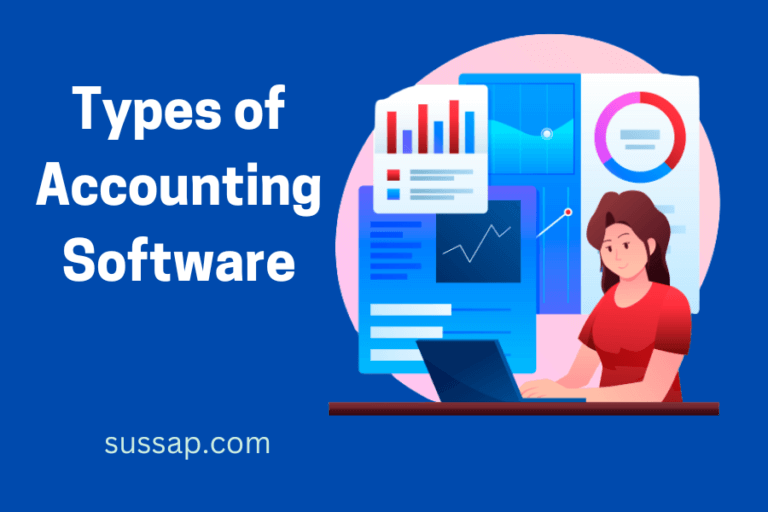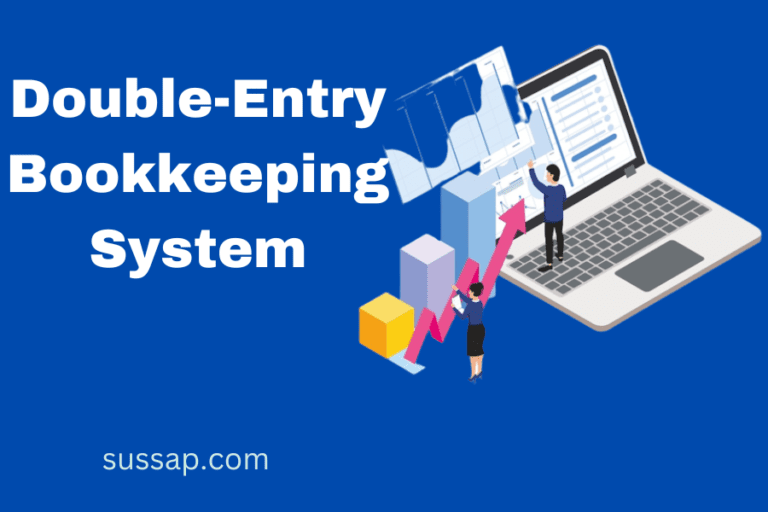The world has recently been captivated by blockchain technology, which offers a secure and decentralized way to record transactions.
Although blockchain is often associated with cryptocurrencies, its applications extend far beyond the world of finance. The accounting industry has been significantly impacted by blockchain technology.
In this article, we will explore the impact and challenges of blockchain on accounting in 2024.
What is Blockchain Technology?

Let’s first define blockchain technology before delving into how it will affect accounting. Blockchain, put simply, is a digital ledger that securely and openly records transactions.
Participants can check and authorize transactions using this decentralized system without using middlemen like banks or governments.
A network of nodes that validate and record transactions makes up a blockchain. Each block of the chain contains many transactions that cannot be modified or erased once added to the chain. This makes blockchain an immutable and tamper-proof ledger.
How is Blockchain Impacting Accounting?
Since the technology has the ability to completely change how financial records are managed and validated, blockchain technology will have a big impact on accounting. Many ways that blockchain is transforming accounting are listed below:
Improved Transparency and Accuracy
One of the most significant benefits of blockchain technology in accounting is transparency. A decentralized ledger with a record of each blockchain-based transaction is available to each participant.
This distributed system ensures that all transactions are visible to everyone, making altering or manipulating financial data difficult.
Additionally, blockchain removes the need for intermediaries like banks and auditors, which historically authenticate transactions, increasing process transparency.
This makes sure that everyone has access to the same data, which makes it simpler to spot and stop fraud and errors. Blockchain technology is also used in accounting to improve productivity, decrease errors, and increase accuracy.
Reduced Fraud
Blockchain technology offers unprecedented security, making it nearly impossible to tamper with transactional data. This provides a significant advantage in accounting, where fraudulent activities are prevalent.
The immutable nature of blockchain data ensures that no one can modify or delete any transactions, making it difficult to manipulate financial data.
Moreover, blockchain technology provides an auditable trail of all transactions, making identifying and preventing fraudulent activities easier.
With all participants having access to the same data, the chances of fraudulent activities are significantly reduced, providing more transparency and accountability.
Improved Efficiency
Traditionally, accounting processes involve multiple parties, each with their own copy of financial records. This might result in inaccuracies, mistakes, and inefficient accounting procedures.
Blockchain technology provides a decentralized, impermeable ledger of financial transactions, which solves this problem.
Using blockchain, all participants in the transaction can view the shared ledger where the financial records are kept. As everyone has access to the same data, there is thus less need for reconciliation and a lower possibility of errors.
The accounting process can be simplified by eliminating the need for intermediaries such as banks or clearinghouses.
Blockchain technology can assist enhance accounting efficiency by:
- Streamlining processes: Blockchain can reduce the time and effort necessary to complete financial transactions by eliminating intermediaries and providing a shared ledger.
- Reducing errors: Since all parties have access to the same information, the potential for errors is greatly reduced.
- Increasing transparency: The decentralized nature of blockchain provides increased transparency, making it easier to track financial transactions and identify potential issues.
Simplified Auditing
Auditing is a critical function in accounting, providing an independent review of financial records to ensure accuracy and compliance with regulations. However, traditional auditing methods can be time-consuming, costly, and prone to errors.
Blockchain technology can simplify auditing by providing a transparent and immutable record of financial transactions.
Auditors can easily access the shared ledger to review financial records, reducing the need for manual reconciliation and increasing the accuracy of the audit.
In addition to simplifying auditing, blockchain technology can also help improve audit trail documentation.
Auditors can quickly track the movement of funds and spot any possible problems because all transactions are recorded on the blockchain. This can increase audit accuracy and lower the likelihood of fraud.
Enhanced Security
One of the most significant impacts of blockchain on accounting is enhanced security. Blockchain technology guarantees tamper-proof, transparent, and safe transactions.
In traditional accounting, the security of transactions relies on trust and manual processes, which can be vulnerable to errors and fraud. Blockchain prevents data tampering by encrypting transactions and distributing them around a network of nodes.
Blockchain technology uses cryptographic techniques to create digital signatures that validate the authenticity of transactions.
Since multiple nodes validate each transaction, it is impossible for anyone to change a transaction without the network’s approval. For the purposes of financial reporting and auditing, this level of security assures that accounting records are reliable and correct.
Cost Reduction
Another significant impact of blockchain on accounting is cost reduction. Traditional accounting methods can be costly, challenging, and time-consuming.
Several of these procedures can be automated using blockchain, which eliminates the need for manual procedures and human involvement. With this automation, costs for accounting procedures like data entry, reconciliations, and auditing can be greatly decreased.
Thanks to blockchain technology, financial middlemen like banks and payment processors may no longer be required.
This can reduce transaction fees and eliminate the need for costly manual processes associated with traditional accounting practices.
Furthermore, blockchain can enable real-time settlement, removing the requirement for currency reserves and speeding up transaction processing.
Increased Trust
Trust is the cornerstone of accounting. Without trust, financial reporting loses its credibility, and investors and stakeholders lose faith in the system. Blockchain technology has the potential to increase trust in accounting by providing a secure and transparent ledger.
Accounting firms can employ blockchain technology to create a secure and transparent system that ensures financial reporting accuracy and integrity.
Blockchain facilitates the construction of a single source of truth, which means that all parties may access and verify the same information.
Furthermore, blockchain ensures that all transactions are securely recorded. This means that any attempts to alter or manipulate financial records will be immediately detected, and the system will reject such attempts.
This gives investors and other stakeholders a high level of comfort that financial reporting is accurate and reliable.
Improved Financial Reporting
Traditional finance reporting systems are usually fraught with errors, delays, and inefficiencies, which can result in inaccurate or incomplete financial statements. Financial reporting can be streamlined and automated using blockchain technology for accurate and timely reporting.
Offering a visible and tamper-proof record of transactions is one of blockchain’s most important features. Because it enables real-time tracking of financial activities and gives an immutable record of all financial data, it is an appropriate tool for financial reporting.
Companies can use blockchain technology to create a shared ledger that all stakeholders can access, assuring financial openness and accuracy.
Related:
Accounting software trends for 2023
Enhanced Regulatory Compliance
Another area where blockchain is having a significant impact on accounting is regulatory compliance. The accounting industry is extensively regulated, and businesses must adhere to a plethora of rules and regulations.
Blockchain technology can simplify and automate regulatory compliance that allows firms to ensure they are following the rules.
Blockchain technology’s capacity to produce a transparent and auditable record of transactions is one of its primary advantages for regulatory compliance.
Businesses can build a secure and impenetrable record of all financial transactions using blockchain technology to ensure the transactions comply with laws and regulations.
Streamlined Payment Processes
Blockchain technology provides a secure and transparent way of conducting transactions. Blockchain transactions are recorded in a decentralized ledger which means no single entity has control over the data.
This makes blockchain transactions secure, transparent, and tamper-proof. The use of blockchain technology in payment processes has resulted in streamlined payment processes.
One of the significant advantages of blockchain in payment processes is the elimination of intermediaries. Intermediaries such as banks, payment gateways, and other financial entities are involved in traditional payment processes.
These middlemen collect fees for their services, which can be substantial, particularly for small enterprises. Transaction fees are lowered because blockchain technology eliminates the need for intermediaries.
The use of blockchain technology in payment processes has also resulted in faster transaction times. Traditional payment processes can take days or even weeks to complete. With blockchain, transactions are completed almost instantly.
This has serious implications for firms, particularly those engaged in international trade. Transaction speed helps organizations to complete transactions in real-time, increasing efficiency.
Challenges of Blockchain Technology on Accounting
Blockchain’s capacity to build a decentralized, transparent, and tamper-proof ledger has the potential to transform the way of keeping data and conducting business.
Yet, blockchain use in accounting is not without obstacles. We will look at the blockchain difficulties in accounting and what has to be done to solve them.
Integration with existing systems
The first challenge of implementing blockchain in accounting is the integration with existing accounting systems. Most businesses have well-established accounting systems that are already working smoothly.
Replacing old systems with new ones that leverage blockchain technology is not an easy undertaking. There are also issues of interoperability between different blockchain platforms and accounting software.
To overcome this challenge, accounting professionals must be willing to invest in blockchain integration and create a seamless transition between existing systems and blockchain platforms. It will require careful planning and consideration of the potential impact on existing workflows and processes.
Security and privacy
Security and privacy are essential components of accounting. Although blockchain technology has strong security features, there are still worries regarding the confidentiality and privacy of sensitive financial data.
While blockchain technology makes data hacking and manipulation nearly impossible, there are still potential vulnerabilities in the blockchain ecosystem.
Blockchain-based accounting solutions must be designed with privacy and data security in mind to meet these concerns.
This includes implementing strong encryption protocols, access controls, and regular audits to ensure the integrity of the system.
Regulatory compliance
Regulatory compliance is another significant challenge of blockchain in accounting. Most countries have specific regulations and requirements for accounting practices.
It is challenging to develop a consistent accounting system because these rules might differ between jurisdictions.
To overcome this challenge, accounting professionals need to work closely with regulators to develop blockchain-based accounting systems that comply with existing regulations.
This will require a collaborative effort between the accounting profession and regulatory bodies to create a compliant and effective framework.
Lack of standardization
There is no standardized way for recording transactions on the blockchain at the moment. This creates a problem for accounting professionals who need to reconcile transactions on the blockchain with traditional financial statements.
It is difficult to ensure the accuracy and completeness of financial records in the absence of a standard method.
Complexity
Blockchain is a complex technology that takes technical expertise to comprehend. This presents a hurdle for accountants who are not technologically savvy. The learning curve can be steep, and accountants may need some time to become skilled at using blockchain for accounting purposes.
Conclusion
The accounting industry stands to be transformed by blockchain technology. Blockchain has the potential to improve the accuracy, efficiency, and reliability of accounting processes due to its capacity for secure and tamper-proof record-keeping.
By eliminating intermediaries and increasing transparency, blockchain can diminish the likelihood of errors and fraud, thereby bolstering trust and confidence in financial reporting.
We should expect to see a fundamental shift in the way financial information is kept, validated, and reported as more companies use blockchain technology for their accounting needs.
Ultimately, blockchain is predicted to have a substantial and revolutionary impact on accounting, opening up new potential for growth, innovation, and collaboration in the accounting business.
Also Read:






